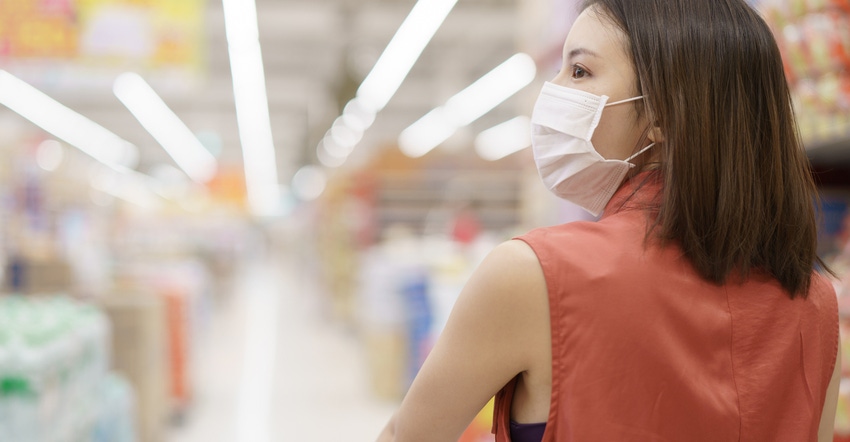April 3, 2020

Over the past month, false information about COVID-19 and food and food packaging has been reported in the media, websites and blogs and shared through social media. That observation comes from food safety and nutrition and wellness specialists with Iowa State University Extension.
Angela Shaw, Anirudh Naig and Shannon Coleman want Iowans to know there is no evidence that COVID-19 is transmitted through food and food packaging.
Shaw is a food safety specialist and associate professor in the ISU Department of Food Science and Human Nutrition. Naig is a food safety specialist and associate professor in the ISU department of apparel, events and hospitality management. Coleman is an assistant professor and nutrition and wellness specialist in the ISU department of food science and human nutrition.
Government agencies agree
The ISU Extension specialists say the Centers for Disease Control, the Food and Drug Administration, USDA and the European Food Safety Authority are in full agreement that there is currently no evidence that COVID-19 has spread through food or food packaging. Previous coronavirus epidemics likewise showed no evidence of having been spread through food or packaging.
In addition, according to the CDC, currently, no evidence supports the transmission of COVID-19 associated with imported goods, and there are no reported cases of COVID-19 in the U.S. associated with imported goods.
“Unlike foodborne gastrointestinal viruses like norovirus and hepatitis A that often make people ill through contaminated food, SARS-CoV-2, which causes COVID-19, is a virus that causes respiratory illness and not food poisoning, and food-borne exposure to this virus is not known to be a route of transmission,” Shaw says.
Naig says it may be possible that a person could get COVID-19 by touching a surface or object that has the virus on it, and then touching their mouth, nose or possibly their eyes, but this is not thought to be the primary way the virus spreads.
Person-to-person contact spreads virus
Coleman notes the virus that causes COVID-19 is spreading from person to person in some communities in the U.S. “The CDC recommends if you are sick, stay home until you are better and no longer pose a risk of infecting others. CDC recommends routine cleaning of all frequently touched surfaces in the workplace, such as workstations, countertops and doorknobs. See a list of approved disinfectants available at EPA.
The ISU Extension specialists agree there is no need to clean or sanitize the outside of food packaging or use non-food-grade detergents to wash food to prevent contamination of COVID-19. Handwashing and social distancing remain the top recommendations for consumers to remain safe.
“It is not recommended to wash produce with soap, as it can cause vomiting and diarrhea and make consumers very sick,” Shaw says. For more information, visit FDA's COVID-19 Frequently Asked Questions.
Source: ISU, which is solely responsible for the information provided and is wholly owned by the source. Informa Business Media and all its subsidiaries are not responsible for any of the content contained in this information asset.
You May Also Like




